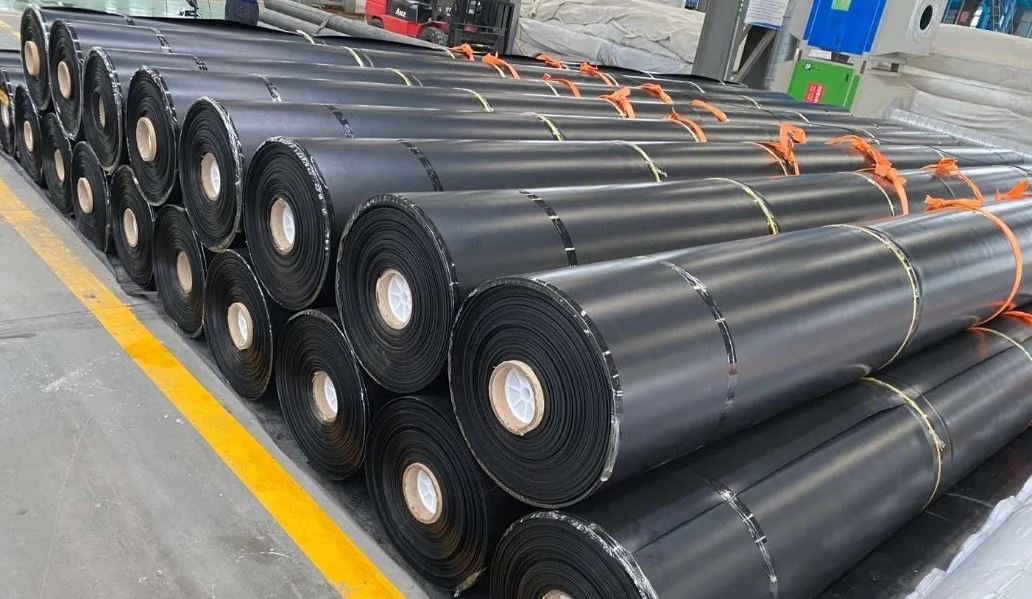High-Density Polyethylene (HDPE) is a thermoplastic polymer made from petroleum. Known for its high strength-to-density ratio, HDPE is used in a variety of applications, from plastic bottles and corrosion-resistant piping to geomembranes and plastic lumber. One of its most popular forms is the HDPE sheets, which offers a versatile solution for numerous industrial and commercial uses.
Properties and Advantages of HDPE Sheets
1. Durability
HDPE sheets are renowned for their robustness and resilience. They are resistant to impact and can withstand considerable wear and tear, making them ideal for demanding applications.
2. Chemical Resistance
These sheets are highly resistant to a wide range of chemicals, including acids, alcohols, and bases. This property makes HDPE sheets perfect for use in environments where chemical exposure is a concern.
3. Water Resistance
HDPE sheets do not absorb moisture, which ensures that they remain stable and do not swell or warp when exposed to water. This characteristic is particularly valuable in marine applications and for outdoor use.
4. Temperature Resistance
HDPE maintains its properties over a wide range of temperatures. It remains flexible at lower temperatures and can handle relatively high temperatures without losing its structural integrity.
5. Lightweight
Despite their strength, HDPE sheets are lightweight, which makes them easy to handle and transport. This property reduces the overall cost of installation and shipping.
6. Cost-Effective
Compared to other materials with similar properties, HDPE is relatively affordable. Its longevity and low maintenance requirements add to its cost-effectiveness over time.
Common Applications of HDPE Sheets
1. Construction
HDPE sheets are used in various construction applications, including as vapor barriers, flooring underlays, and protective coverings. Their durability and chemical resistance make them suitable for harsh construction environments.
2. Packaging
In the packaging industry, HDPE sheets are used to make products such as plastic bottles, containers, and trays. Their lightweight nature and chemical resistance make them ideal for storing and transporting a wide range of goods.
3. Agriculture
Farmers and agricultural professionals use HDPE sheets for applications such as lining ponds, canals, and irrigation ditches. The sheets prevent water loss and protect against soil contamination.
4. Marine Applications
HDPE sheets are commonly used in marine environments for applications like boat parts, docks, and marine structures. Their water resistance and durability make them an excellent choice for withstanding harsh marine conditions.
5. Automotive
In the automotive industry, HDPE sheets are used to manufacture parts such as fuel tanks, car interiors, and bumper components. Their impact resistance and lightweight properties contribute to vehicle efficiency and safety.
Environmental Impact and Sustainability
HDPE is considered an environmentally friendly material. It is fully recyclable and can be repurposed into new products, reducing the demand for virgin plastic. Additionally, the production of HDPE has a lower environmental footprint compared to other plastics, as it requires less energy and produces fewer greenhouse gases.
Installation and Maintenance Tips for HDPE Sheets
Installation Tips
- Preparation is Key
- Before installing HDPE sheets, ensure that the surface is clean, dry, and free of debris. This helps achieve a better bond and ensures the longevity of the installation.
- Cutting and Shaping
- HDPE sheets can be cut and shaped using standard woodworking tools like saws and drills. It’s important to use sharp blades and drills to avoid rough edges and ensure precise cuts.
- Fastening
- Use appropriate fasteners such as screws and bolts designed for plastic. Pre-drilling holes slightly larger than the fasteners helps accommodate thermal expansion and contraction, preventing cracking.
- Joining Methods
- HDPE sheets can be joined using welding techniques like butt welding, extrusion welding, and hot gas welding. Each method has its own advantages depending on the application, so choose the one that best suits your needs.
Maintenance Tips
- Regular Cleaning
- Clean HDPE sheets with mild soap and water to remove dirt and grime. Avoid using harsh chemicals or abrasive cleaners that can damage the surface.
- Inspection
- Periodically inspect the sheets for signs of wear, damage, or chemical exposure. Early detection of issues can prevent costly repairs and replacements.
- Avoid Excessive Heat
- While HDPE sheets are temperature resistant, prolonged exposure to excessive heat can cause warping or deformation. Ensure that the sheets are not exposed to direct flames or high-temperature sources.
- UV Protection
- If using HDPE sheets outdoors, consider UV-stabilized versions to prevent degradation from prolonged sun exposure. This extends the lifespan of the sheets and maintains their appearance.
Innovations in HDPE Sheets
The development of HDPE sheets continues to evolve, with new innovations enhancing their functionality and expanding their applications.
- Enhanced UV Resistance
- Manufacturers are developing HDPE sheets with improved UV resistance, making them even more suitable for outdoor use. This innovation helps in extending the life of outdoor installations like playgrounds, signage, and marine structures.
- Antimicrobial Properties
- HDPE sheets with antimicrobial additives are being introduced for applications in healthcare and food processing. These sheets inhibit the growth of bacteria and other microorganisms, enhancing hygiene and safety.
- Textured Surfaces
- Textured HDPE sheets provide additional slip resistance, making them ideal for flooring and decking applications. The textured surface improves safety by reducing the risk of slips and falls.
- Eco-Friendly Options
- There is a growing trend towards producing HDPE sheets from recycled materials. These eco-friendly sheets offer the same durability and performance while reducing the environmental impact associated with plastic production.
Conclusion
HDPE sheets offer a blend of strength, versatility, and cost-effectiveness that makes them indispensable across various industries. Whether you are in construction, agriculture, marine, or any other sector, HDPE sheets provide a reliable and durable solution for your needs. As the demand for sustainable and long-lasting materials grows, HDPE continues to prove its value and importance in modern applications.


